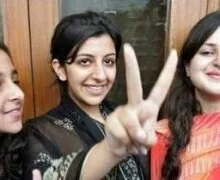Muslims and Christians break fast together to further interfaith dialogue
Reciting verses from the Bible and Quran, roughly 50 area Muslims and Christians popped dates into their mouths to break fast together for the Muslim holy month of Ramadan at Islamic Foundation North’s Libertyville mosque.
The recently held interfaith “iftar,” or Muslim fast-breaking meal, is a testament to ongoing efforts to improve relations and understanding between diverse faith communities, leaders say.
For Gurnee physician Alia Ammar, it helps present Muslims in a normal light to outsiders.
“If you turn on CNN, you don’t ever see anyone like me representing our faith,” said Ammar, who wears a hijab or Muslim head covering.
The effort came in response to a growing curiosity about Muslims and Islam in a post-Sept. 11, 2001, America, said Vaseem Iftekhar, president of Islamic Foundation North.
“We are doing it on a small scale,” Iftekhar said. “The need of the hour is much more intense because all faiths teach common good, and sensational news seems to dominate. There is a lot of ignorance, and educating each other on common values is only going to do good.”
Islamic centers throughout the region are hosting similar interfaith iftars during the monthlong fasting period, expected to end Oct. 1 with a celebration known as Eid al-Fitr.
“Had it not been for interfaith relations in the Chicago area, the aftermath of 9/11 would have been very different,” said Ghulam Haider Aasi, professor of Islamic studies at American Islamic College in Chicago. “Muslims of Chicago fortunately did not see as bad a situation (of backlash) as people in other parts of the country.”
Leaders emphasized commonalities between the faith traditions and the significance of building fellowship through the fast-breaking ritual.
“What I think is valuable about this is two communities build personal relationships first in the context of which they are then able to discuss the larger issues between them,” said the Rev. Thomas Baima, Provost at the University of St. Mary of the Lake Mundelein Seminary.
The Archdiocese of Chicago formally began interfaith relations with the Muslim community in 1985. It later joined other Christian, Muslim, Hindu and other religious groups to form the Chicago Council for a Parliament of the World’s Religions in 1993.
Baima said despite the troubled history of Islam and Christianity globally, “America offers a unique opportunity for the two communities to have a fresh start.”
The goal of this recent dinner also was to discuss ways the two faith communities could cooperate on social causes, said Scott Alexander, associate professor of Islam and director of the Catholic-Muslim Studies Program at Catholic Theological Union in Chicago.
“(We) talked a lot about trying to identify a service project that the two communities can work on,” Alexander said.
Ideas include volunteering at area soup kitchens and helping revamp a playground at a public school, he said.
Alexander said the other goal is to get more people involved in the Amazing Faiths Project, a grass-roots movement that started in 2007 with a series of interfaith dinners hosted by Houston residents.
It has since opened peoples’ homes and the doors of churches, mosques, synagogues and temples to people of diverse faith communities nationwide.
Alexander said the goal is to get more people hosting or participating in interfaith dinners throughout the country on Nov. 13 to talk about life, spirituality and faith.
“Our faith traditions are at their best and most true to what they really are about by bringing people together for the betterment of the human family,” he said.
Source: Daily Herald
http://www.dailyherald.com/story/?id=235401&src=3
